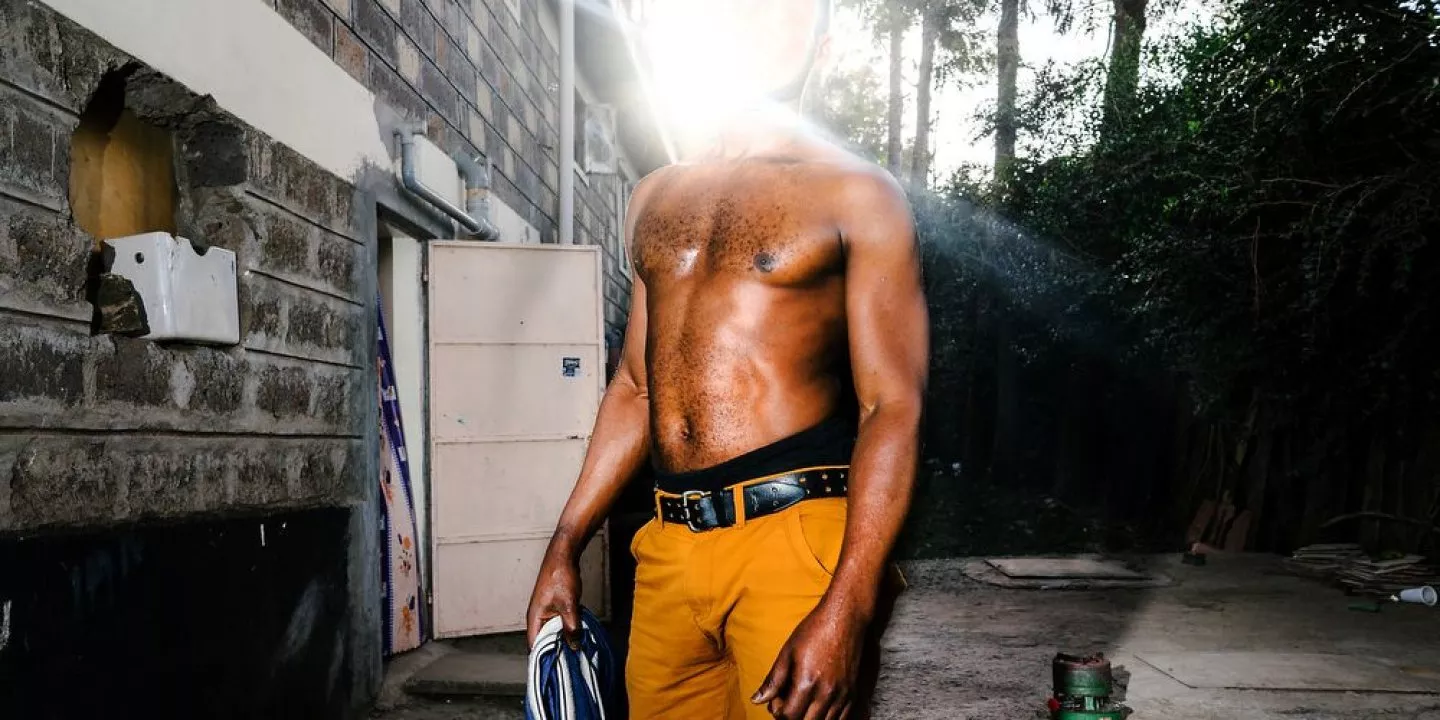
An HIV-positive, gay refugee from Uganda stands outside the house he shared with dozens of other LGBT refugees on the outskirts of Nairobi. JAKE NAUGHTON
For months, nearly two dozen gay, lesbian and transgender Ugandans had been living in a large house on the outskirts of Nairobi in an area called Rongai. Long after a court struck down Uganda’s infamous anti-gay law—dubbed the “Kill the Gays” bill for a death penalty provision in an early draft—LGBT people in Uganda were still being disowned by their families, hunted down by neighbors, jailed by police, even killed. Hundreds fled Uganda—mostly to Kenya, where they are faring little better.
Many of these refugees grew up in urban, middle-class families and loathe living in a hot, squalid refugee camp, as Kenyan law requires of all refugees. They are city people, accustomed to partying at secret gay clubs in Kampala.
One afternoon last December, a Kenyan man came to the gate of the Rongai house with a warning: Neighbors were plotting to attack the gay refugees that night and run them out of town. The refugees didn’t wait. They fled, scattering to different apartments across the city.
Read in the June 10, 2016 print edition of Newsweek
